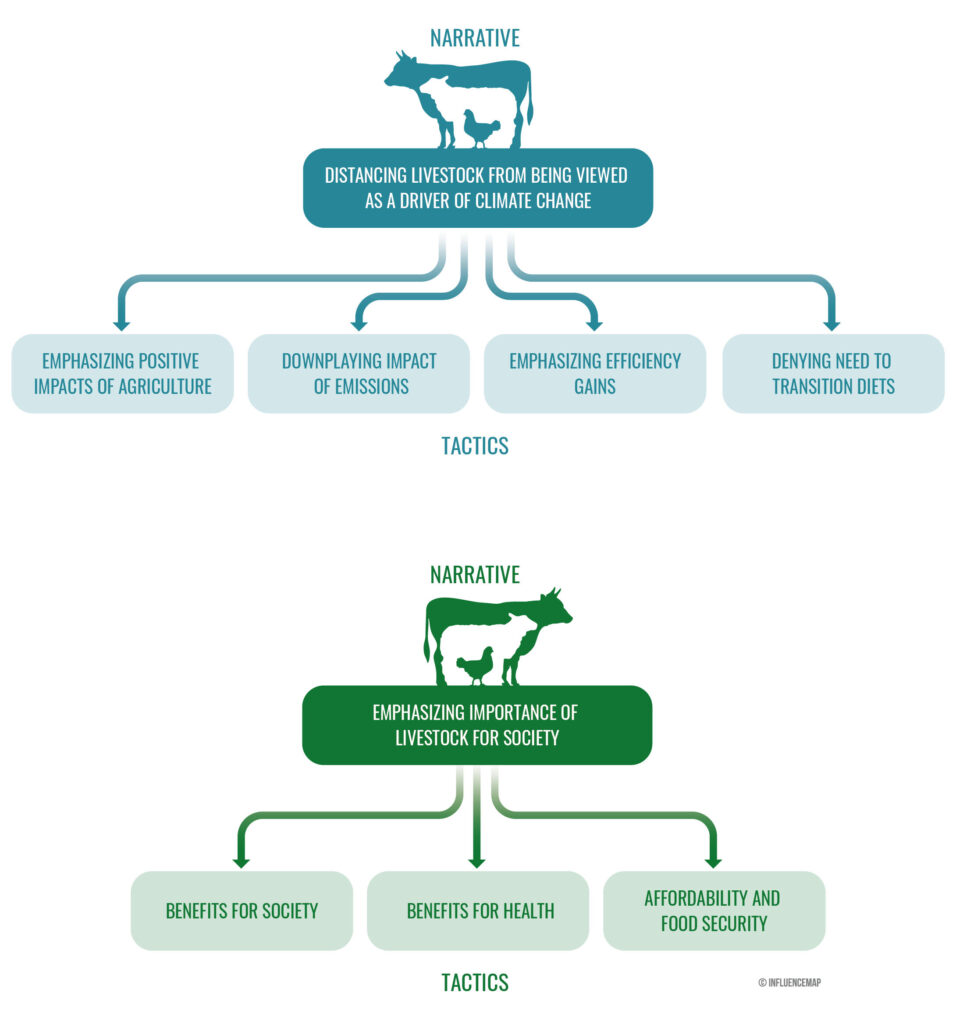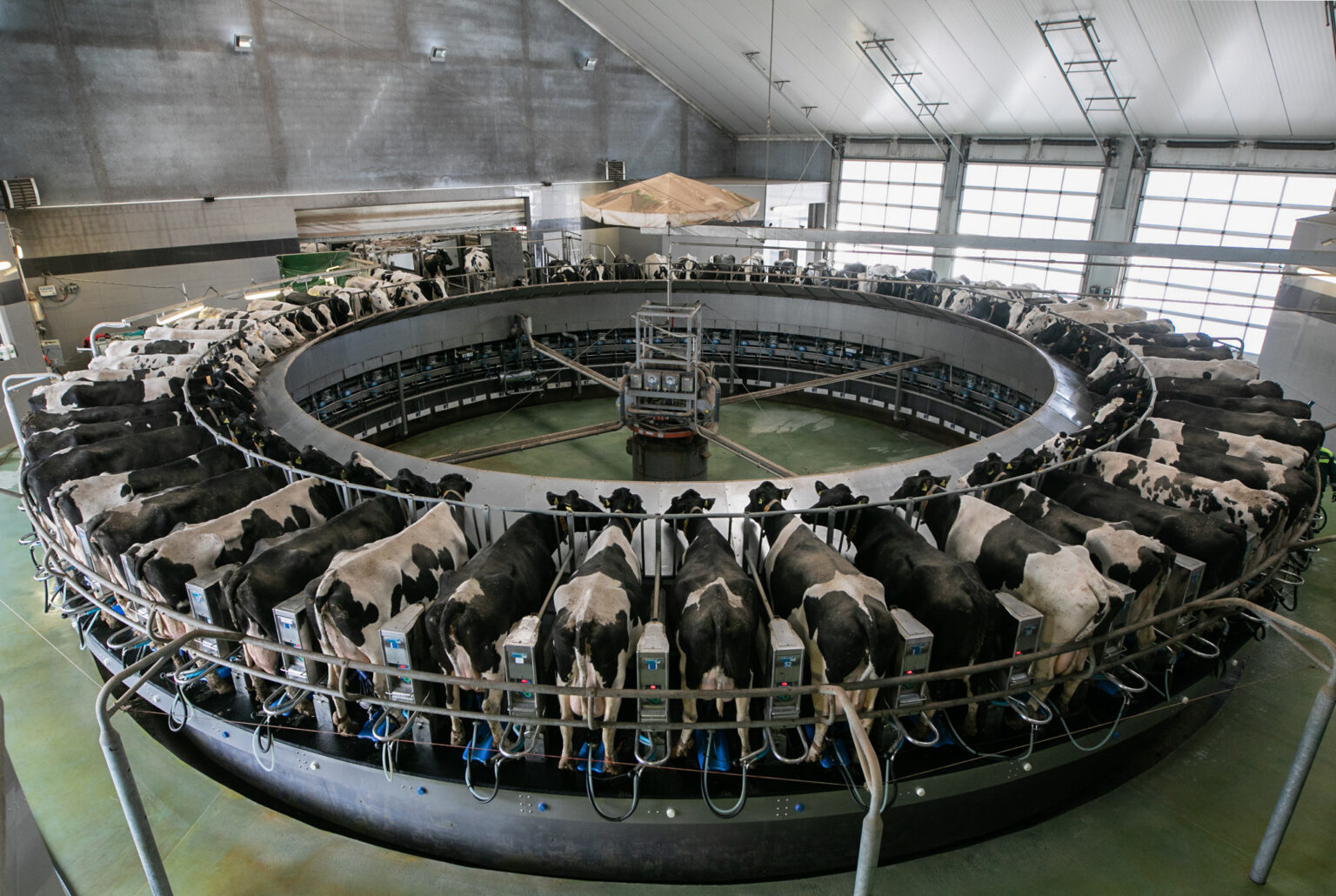Intense lobbying from the meat and dairy industry since 2020 has helped weaken and stall crucial climate policies in the European Union, according to a new report from InfluenceMap.
For the past three years, agricultural industry associations such as farmers’ union COPA-COGECA, European Livestock Voice, and the European Livestock and Meat Trades Union (UECBV) have spearheaded the pushback against six key EU climate policies, alongside meat and dairy companies such as Cargill, Arla, and Vion.
The report, published on 29 May by InfluenceMap, a think tank that analyses the impact of business and finance on climate change, found that the livestock industry had “largely succeeded” in weakening EU policies, which were designed to slash the climate impact of the meat and dairy sector.
The six policies targeted by the industry include the EU’s Farm to Fork Strategy, the Industrial Emissions Directive Review – which aimed to reduce climate pollution such as methane released by farms – and the Sustainable Food Systems Framework, which aimed to drive the transition to more sustainable diets.
The report found that three other policies – the Review of EU Farm and Food Products Promotion Policy, Review of EU School Fruit, Vegetables and Milk Scheme, and the Methane Strategy – were also the targets of heavy lobbying by meat and dairy interests.
“Following obstructive behaviour from the industry, and the infiltration of industry narratives in the EU Parliament and EU Commission, policies that are fundamental to reducing GHG emissions in line with scientific advice have been significantly weakened or have stalled,” said Venetia Roxburgh, EU program lead at InfluenceMap.
“Without science-based policies tackling the sector, it does not seem likely that European agricultural GHG emissions will reduce in line with 1.5C.”
An Iteration of the Corporate ‘Playbook’
The report analysed how ten meat and dairy companies, and five related industry associations, had engaged with EU climate policy from 2020-2023, and how they had shaped public understanding of the topic with two overarching “narratives”.
According to the analysis, the industry relied on two arguments to “sow doubt” about the climate impact of animal agriculture and undermine efforts to cut the sector’s emissions.
On the one hand it downplayed the sector’s contribution to climate change, and on the other, emphasised the importance of livestock in people’s diets and the economy.
The report drew parallels between these communication tactics and those used by the fossil fuel industry, which has withheld information, misled the public about its planet-warming impact for decades, and continues to heavily lobby against climate policy around the world.
“Meat and dairy producers, and the industry associations representing them, appear to be borrowing tactics and narratives from the fossil fuel playbook in order to hold back policies to tackle their GHG emissions,” said Roxburgh.
DeSmog has previously catalogued similar narratives – and their impact on policy – used by producers and users of agricultural chemicals like pesticides and antibiotics.

Credit: InfluenceMap.
Powerful Meat and Dairy Industry Associations
InfluenceMap’s analysis found that meat and dairy trade associations were particularly negative about climate policies, and were critical on behalf of their member companies.
Industry associations were “significantly more engaged” than their members on climate policies related to land use, particularly those that encouraged a transition to more plant-based diets and to scale up carbon sequestration.
COPA-COGECA was “five times more engaged” than the companies than its core membership, and the UECBV was “around three times more engaged” than their members.
“This trend could indicate that companies are relying on their industry associations to engage on their behalf, rather than carrying out their own active advocacy,” according to the report.
None of the industry associations analysed by the report appeared to engage “positively” with the EU policies designed to transition diets or reduce livestock emissions.
By comparison, companies that make consumer goods, like Unilever and Nestlé, had more “positive” engagement with climate policies, which they supported in company documents and submissions to the EU, while meat and producer companies themselves tended to engage much more negatively.
UECBV told DeSmog that it “stands for a sector that is committed to the objectives of the Farm-to-Fork strategy as part of the Green Deal”, and added that InfluenceMap’s interpretation of its lobbying was “one-sided” for not mentioning UECBV’s efforts to engage with issues like animal welfare and sustainability.
COPA-COGECA, European Livestock Voice, Cargill, Arla, and Vion had not responded to a request for comment at the time of publication.
This story was updated to add a comment from UECBV.
Subscribe to our newsletter
Stay up to date with DeSmog news and alerts






